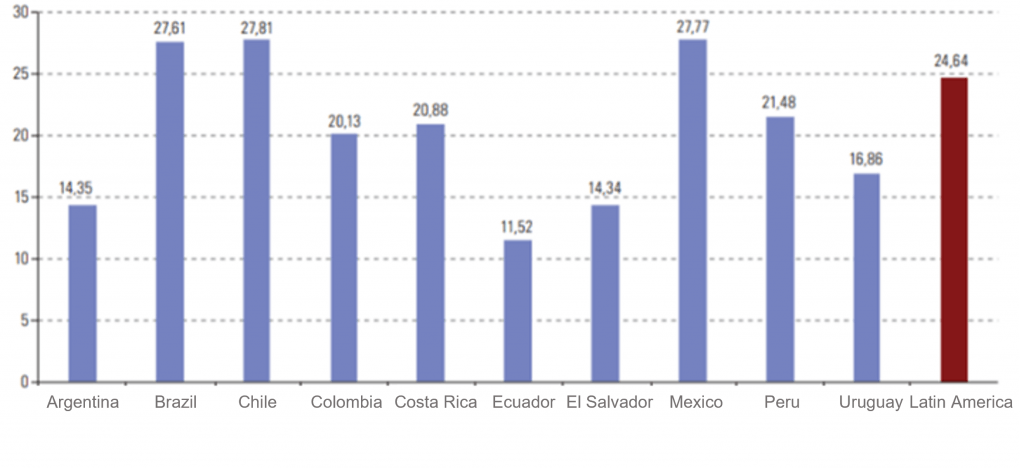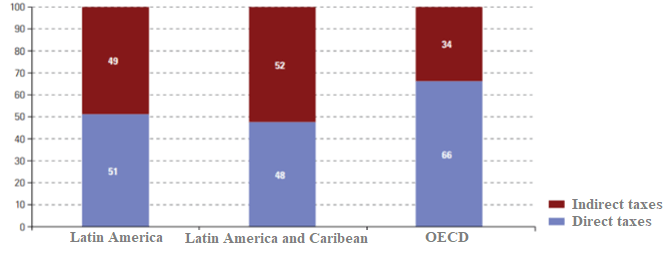The Social Pact – Part I

The social disorganization, derived from the calamities that currently affect especially the lower income classes, is aggravating the deterioration of the order that regulates social coexistence, with many violations of the rule of law.
Throughout history, injustices have triggered disorders, which led to corrode the little harmony existing in humanity living in an environment of natural disturbances, decreasing its population and casting doubts on the survival of the species, and the COVID 19 pandemic has been one of them in the 21st century.
The services provided by the State appear to be the main responsible for social anguish: health, as shown by the mortality indicators of the pandemic, has not been able to efficiently fulfill its purpose of preserving life; Education has not contributed effectively either in critical moments, with a culture for coexistence in harmony, and security – essential service – has been and continues to be insufficient to control the serious threat posed by criminal derivations of illicit activities such as drug trafficking and those that result from unemployment and poverty.

Source: Economic Commission for Latin America and the Caribbean (ECLAC), on the basis of World Inequality Lab, World Inequality Database [online] https://wid.world/
¿. How has it come to the dissociation of an order whose agreement (if there ever was one) has taken so long to build?

Source: Economic Commission for Latin America and the Caribbean (ECLAC), on the basis of Organization for Economic Cooperation and Development (OECD), OECD Start [online database] http://stats.oecd.org
Since its dawn, humanity has been overcoming the scarcity, the risks, and the difficult natural conditions that the planet presented, in a framework of misunderstandings and conflicts.
Nomadic groups of related individuals united by kinship survived thousands of years ago by hunting ruminants and gathering wild fruits and seeds.
The agricultural revolution that emerged in the East about 10,000 years ago from the Holocene or the advent of climate change, supposes the beginning of a production organized by means of improvised rules, for habitat, possession, and coexistence, administered by the leadership of the strongest.
The invention of writing and the codes of new kinds of religion that emerged about 5500 years ago gave rise to the first relatively civilized centers.
Divine law and very later the theory of the social contract sustained different regulatory orders of coexistence.
The development of the order highlights relevant milestones in its evolution:
Citizens of ancient Greece (1200 BC – 146 BC) provided voluntary payments when it was necessary to reinforce the armed forces, build bridges, or organize sporting or cultural events.
Subsequently, those who had dominion over territorial spaces won in conflicts or delegates, submitted to the least favored, thus:
With the transformation of monarchies at the end of the Middle Ages, a new concept of sovereignty appeared, creating territorial alliances, bourgeoisie and privileges, and a system of law that imposed the ideas of “legal equality” and “citizenship”, recognizing the State as its legal scope.
Pedro Farias García in his article “Reflections on the Social Pact” collects the opinion of two philosophers when mentioning the currents of thought of the seventeenth century[1]:
At the time, monarchies were handling the relationship between the Society and the State, which agreed with Parliament the exercise of power over their subjects and rights over their colonies.
The Bill of Rights (1689) of the United Kingdom guaranteed that the king could not demand a tax without parliamentary approval, its provisions did not reach the population of the colonies to whose imports they applied heavy tariffs.
Many of the great institutional transformations that have occurred in history have their origin in a fiscal rebellion or this has been important in the link between representation and taxation.
With the “Tea Party” uprising (1773), North Americans rebelled against the tax law that symbolized Britain’s colonial power, rejecting the right of the British to tax them without representation in Parliament. The “Boston Tea Party” was the origin of the US War of Independence. USA (1775/1783).
The fundamental stage of the modern State was initiated in 1789 by protests of nobles, clergymen and cities and parishes of France for hospitals without supplies, uncertified surgeons, troops with starving horses or inefficient police, impassable roads, broken bridges, ecclesiastical and manorial privileges, lack of representation and arbitrary or unaffordable justice”, that appear as triggers of the French Revolution (14/7/89).
“To constitute a community in a scenario in which order and freedom reconcile” was the political problem of Jean Jacques Rousseau, his ideas founded the enlightened movement and the French Revolution, which established one of the most precious values in the coexistence of communities, democracy.
In the “Declaration of the rights of man and citizens” in a document considered a precursor of human rights, the French National Constituent Assembly (8/26/1789) defined personal and community rights.
In the eighteenth century “of the enlightenment”, simultaneously with social demands for redistribution to improve services, a tax was imposed on income, with which the principle of equity began to be discussed.
Pedro Farias García also mentions Rousseau, when towards the eighteenth century he proposed the pact as an act of substitution with moral and legitimate equality, correcting what nature had put of physical inequality between men unequal in strength and talent, helping them to become together more equal by convention and law.
As can be seen in history, over the course of time the relationship between the State and Society has developed in an uncontrolled manner, the peoples wandered in the unstable harmony of their coexistence, dependent on spheres of power that took advantage of them with little or no retributive benefit whatsoever.
[1] Pedro Farias García, Reflexiones sobre el Pacto Social, REFLEXIONES SOBRE EL PACTO SOCIAL – Bing
2,172 total views, 4 views today
